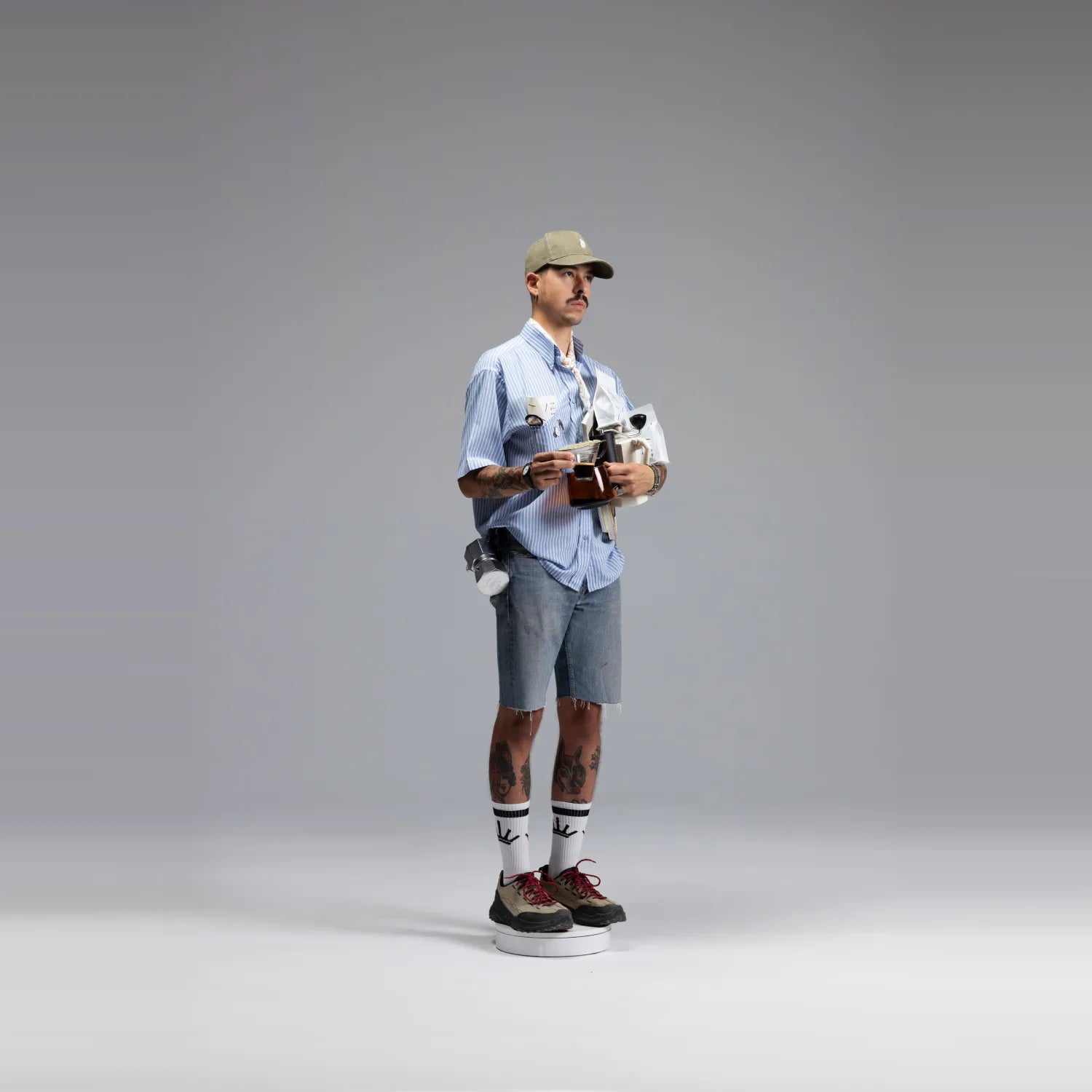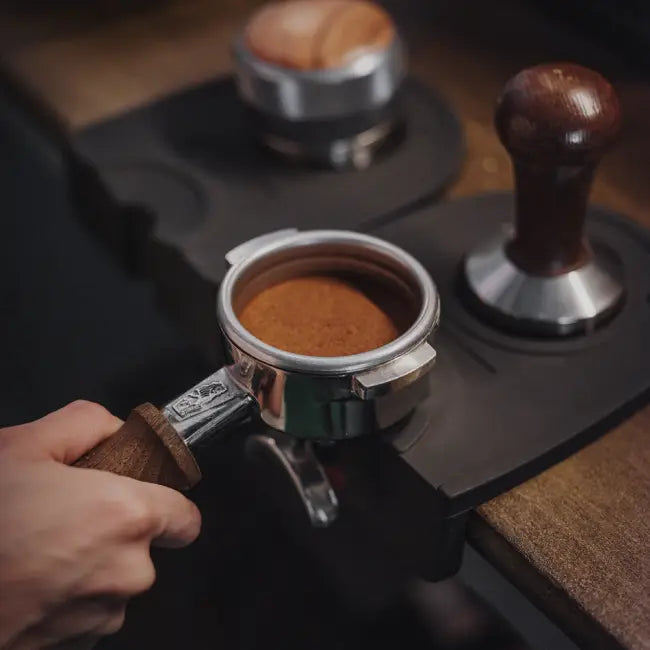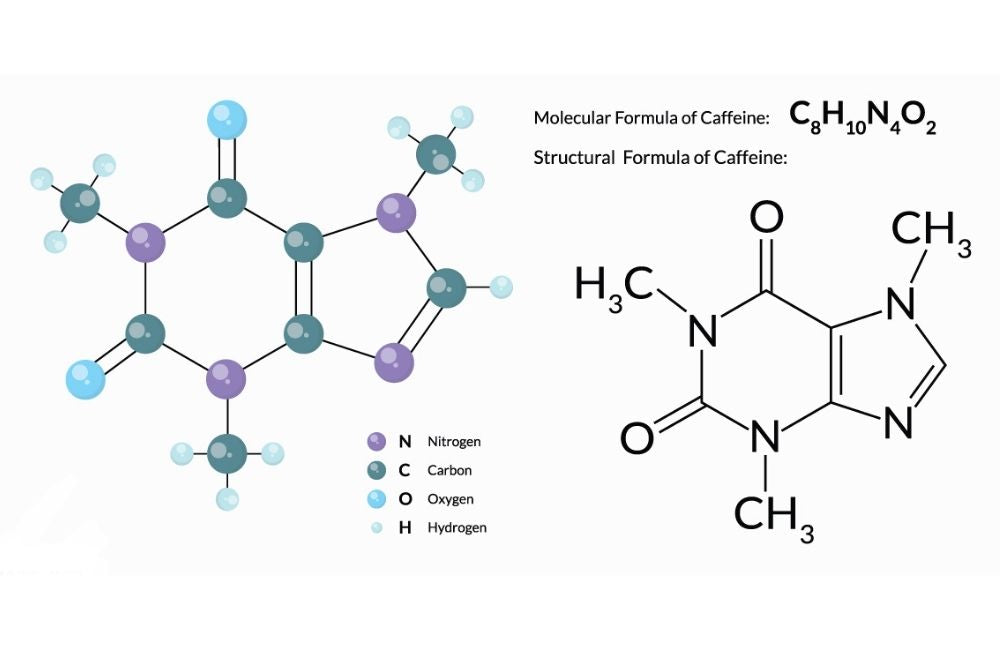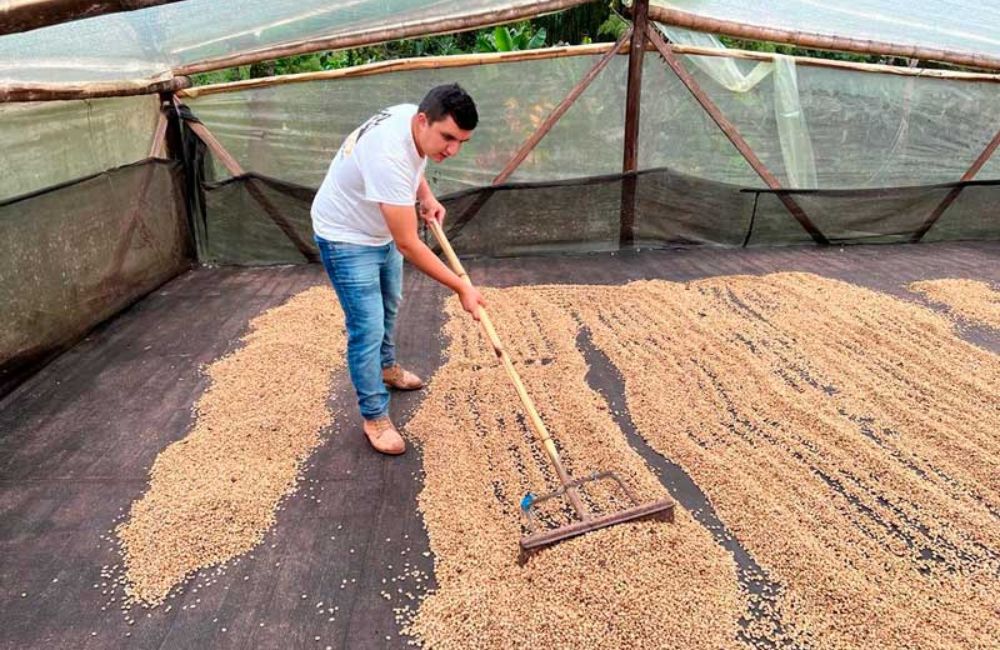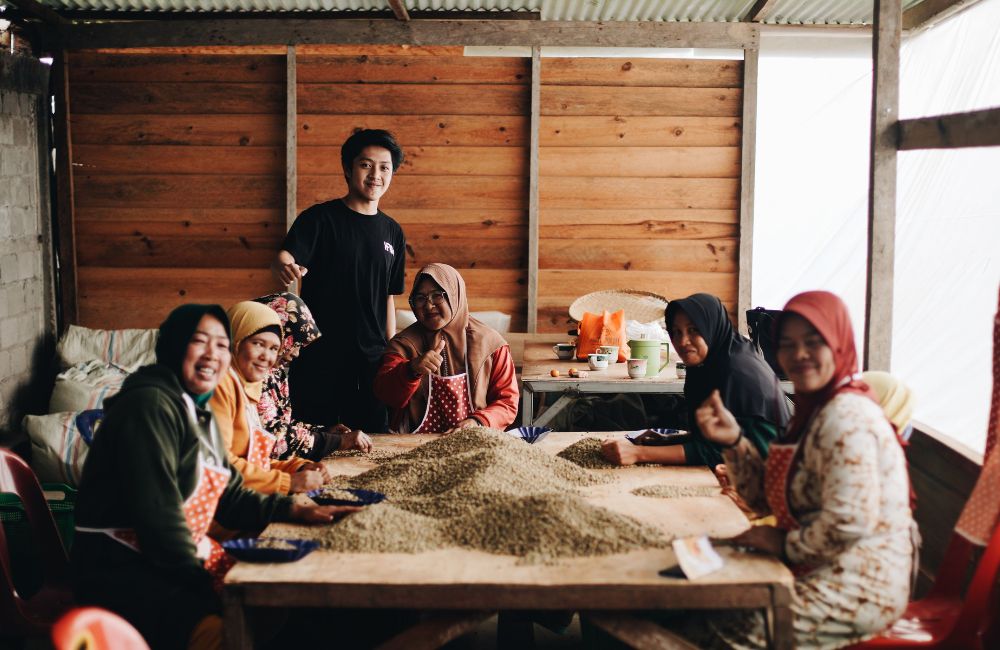El café descafeinado
Es una aseveración filosófica que el ritmo de la vida se ha acelerado mucho en las últimas décadas. Para muchos el café, por sus propiedades psicoactivas, no es solo una experiencia gustativa, sino también un ayuda para mantener el ritmo impuesto por la sociedad. Pero ¿qué pasa cuando queremos disfrutar de la experiencia gustativa de un café sin la consecuente estimulación de nuestro sistema nervioso? En estos casos podemos volvernos al café descafeinado.
Es también una aseveración casi filosófica que a los puristas del café el descafeinado les resulta un sacrilegio. Y hasta ahora nos les faltaba razón, los métodos por los cuales se conseguía descafeinar el café hacían que este perdiese muchas de sus cualidades organolépticas.
Pero las cosas han cambiado y están cambiando. La aplicación de nuevos métodos y tecnologías han permitido obtener cafés descafeinados de calidad. Estos cafés descafeinados se obtienen por método naturales y sin utilizar químicos.

Swiss Water es un proceso por osmosis con agua que elimina el 99.9% de la cafeína sin usar químicos
La cafeína
En primer lugar hemos de establecer qué es la cafeína. La cafeína es un compuesto químico, un antioxidante alcaloide que actúa como una sustancia psicoactiva que estimula el sistema nervioso.
La cafeína la podemos encontrar en diferentes planta y frutos como el café, el té o la guaraná. En todos los casos el compuesto químico es el mismo y los efectos similares. Recibe nombres diferentes dependiendo de la fuente y porque puede estar mezclada con otras sustancias específicas de cada planta o fruto en el que la encontramos.
La cafeína tiene muchas propiedades benéficas para nuestro organismo (puedes consultar este articulo en el que enumeramos diez beneficios del café respaldados por la ciencia). Pero, dadas las propiedades psicoactivas que estimulan el sistema nervioso, puede haber situaciones en las que no sea conveniente consumirla.
En esto casos, y no queriendo renunciar a la experiencia gustativa de un café, es cuando podemos recurrir al café descafeinado.
El café descafeinado
El café descafeinado es el resultado de someter cualquier café a un proceso de descafeinización. La cafeína está naturalmente presente en el café. La descafeinización es un proceso por el cual se elimina este componente psicoactivo.
El café descafeinado se obtiene de un café que ha sido cultivado de la misma manera que cualquier otro café. Luego se procesa y se seca utilizando los métodos comunes y se obtiene lo que conocemos como café verde.
Por esta razón, para obtener un café descafeinado de calidad, hemos de partir de un café de calidad. Factores como el lugar de plantación, la altura, la calidad del terreno o el clima afectarán a la calidad del café y se deben de tener en cuenta.
El proceso de descafeinización se realiza con el café verde y antes de tostarlo. Los tostadores de café compran el café verde ya sin cafeína y lo tuestan ajustando el perfil de tueste para sacar a relucir sus mejores cualidades.

El café se descafeína cuando está verde (antes de ser tostado)
Procesos de descafeinización
Existen varios métodos para hacer un café descafeinado, pero todos siguen la misma lógica. Los granos de café verde se sumergen en agua para que la cafeína, que es un compuesto soluble al agua, se disuelva y luego se elimina el líquido resultante con la cafeína.
Aunque basados en la misma lógica, los procesos tradicionales para hacer café descafeinado utilizaban químicos, generalmente el cloruro de metileno y el acetato etilo, para disolver la cafeína.
El método que utiliza químicos se conoce como solvente directo. En este método las semillas de café verde se sumergen en agua con uno de estos químicos -cloruro de metileno o acetato etilo-. Esto químicos son ácidos que disuelven la cafeína. Luego se desecha el agua y se vuelve a secar el café, ahora sin cafeína.
Pero este método tiene dos contraindicaciones principales. La primera, esto químicos son perjudiciales para la salud. La segunda, los químicos no solo disuelven la cafeína, sino otros compuestos del café que le aportan sabor, aroma y cuerpo.
La investigación sobre el proceso de descafeinización ha dado lugar a nuevos métodos para hacer cafés descafeinados sin químicos y respetuosos con el resto de los compuestos del café. Es cierto que no se puede descafeinar un café -todavía- sin afectar, aunque sea en menor medida, su perfil organoléptico, pero los métodos actuales son mucho más respetuosos y se obtienen cafés con un perfil de cata excelentes.
Estos métodos son el método con dióxido de carbono y método por osmosis conocido como Swiss Water.
El método Swiss Water para el café descafeinado
Nos vamos a centrar en el método Swiss Water puesto que los cafés descafeinados que trabajamos en Ineffable Coffee han sido tratado por este método.
Mencionaremos solo brevemente el método por dióxido de carbono. El proceso es exactamente igual al del método de solvente directo, pero en lugar de un químico se utiliza dióxido de carbono. Este método es menos tóxico que el uso de cloruro de metileno o acetato etilo pero mucho más costoso y prácticamente no se usa.
El método Swiss Water, en cambio, es más económico que el de dióxido de carbono y no introduce ningún químico ni elemento tóxico. El método Swiss Water, también conocido como método por osmosis, se basa, precisamente, en este concepto.
Simplificando, este proceso consiste en sumergir el café verde en agua con una solución de café verde sin cafeína. Esta solución se obtiene por este mismo método y también es natural y cien por cien libre de químicos.
El café tiene muchos compuestos solubles que son los que, al entrar en contacto con el agua, elaboran la bebida que nos encanta. La lógica es que, si sumergimos el café verde en un agua ya saturada con todos los compuestos solubles del café menos la cafeína, el agua solo absorberá la cafeína del café verde manteniendo el resto de las cualidades intactas.
Este proceso consigue extraer hasta un 99.9% de la cafeína, y, aunque es inevitable que se pierdan algunas cualidades organolépticas por el camino, se consigue un café de especialidad descafeinado fantástico; lo que significa que seguiremos encontrando notas de cata, como especias, mazapán o chocolate.
Este método es un poco más caro que el método por solvente directo (que sí, se sigue usando en los cafés comerciales de poca calidad) pero es casi igual de efectivo, mucho más saludable y respetuoso con el café.
Video que ilustra el proceso de descafeinización con el método Swiss Water u osmosis
Cuánta cafeína tiene un café descafeinado
Y te preguntarás ¿pero tiene cafeína un café descafeinado? La respuesta es que sí, pero en cantidades mínimas. El 99,9% de la cafeína se ha eliminado. Hasta ahora no se ha desarrollado ningún método que elimine el cien por cien de la cafeína. Pero esto no es algo que realmente deba preocuparte ya que la cantidad de cafeína es anecdótica.
Según la legislación vigente en la Unión Europea la cantidad de cafeína no podrá exceder el 0,1 del peso seco total para que se considere un café descafeinado. Intentemos hacer esto más comprensible y práctico.
No sabemos exactamente cuánta cafeína tiene un café, puesto que esta varía dependiendo de muchos factores. Lo normal es que una taza de café tenga entre 70 y 140 mg de cafeína y una taza de café descafeinado entre 1 y 7 mg.
Los efectos psicoactivos de esta cantidad de cafeína no son realmente relevantes. Es, por ejemplo, como si te tomaras una cerveza sin alcohol. Todas las cervezas sin, incluso las 0.0, tienen una cantidad muy pequeña de alcohol, pero por muchas cervezas que tomemos no notaremos los efectos del alcohol.
Calidad del café descafeinado con agua o por osmosis
El sabor y aroma de un café lo componen más de 400 moléculas diferentes. La cafeína es solo una de estas moléculas, además, es insípida. En principio, si solo se eliminara la cafeína, esto no debería afectar a las cualidades organolépticas de un café, pero aún no hay ningún método que solo y exclusivamente elimine la cafeína.
El método para hacer café descafeinado con agua, por osmosis, también llamado descafeinado natural, es el más respetuoso. Aun así, inevitablemente se alteran algunas de las 400 moléculas que dan al café su aroma y sabor característico.
Esto significa que cualquier café que pasa por un proceso de descafeinización será de menor calidad que el mismo café que no haya sufrido este proceso. Pero no quiere decir que un café descafeinado no pueda ser de gran calidad.
Si partimos de la base de un café de especialidad, bien cultivado y procesado y que posteriormente hemos descafeinado usando el método de osmosis o Swiss Water Process, la calidad excepcional final del café está sorprendiendo cada vez más a amantes y profesionales del café.
Todos los cafés descafeinados que trabajamos en Ineffable Coffee han sido tratados exclusivamente por el método Swiss Water.

Puedes disfrutar de un café descafeinado de calidad en cualquier momento
Comprar café descafeinado
A la hora de comprar café descafeinado de especialidad los factores en los que debemos fijarnos son los mismos que en otro café de especialidad. Es importante el lugar de origen, la altura, el tipo de cultivo, que sea fresco y de temporada y que esté tostado correctamente, entre otros parámetros.
También es importante que este empaquetado correctamente y, siempre que podamos, comprarlo en grano y molerlo solo antes de usarlo. Si seguimos estas indicaciones y lo elaboramos de forma adecuada, podremos obtener una bebida de café de especialidad muy rica y sin cafeína.
En nuestra tienda online de café de especialidad todos nuestros cafés descafeinados se ajustan a estos parámetros para que puedas disfrutar de tu café en cualquier momento, pero sin los efectos psicoactivos de la cafeína.
